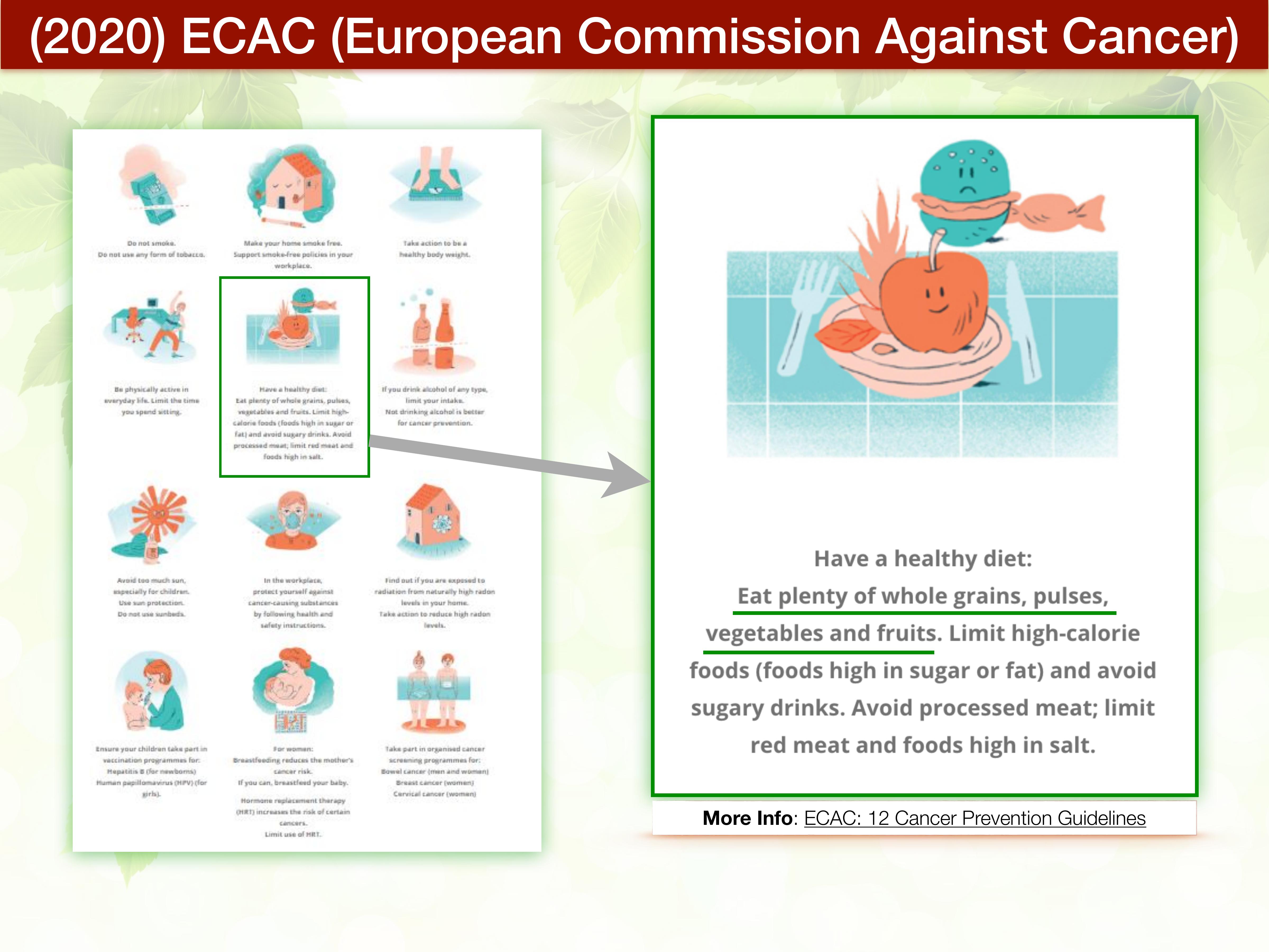›
›
›
24 Apr 2022
How well do dietary guidelines by European Code Against Cancer (ECAC) align with those by
Plant-Based Organizations like
ACLM,
PCRM,
PBHP (UK),
Plantrician Project,
DFN, and
PAN? Do they endorse a vegan or plant-only food system?
What is European Code Against Cancer (ECAC)? This article explains:
ECAC has published 12 recommendations (also available here and in PDF format).
Dietary guidelines:
Note the emphasis on plant foods: whole grains, pulses, vegetables and fruits! These are exactly the main food groups in a Whole Food Plant-Based diet!
Alcohol guidelines:
Supplement guidelines: Not part of the 12 recommendations. However, ECAC addresses it in one of the Q&As: see ECAC (European Commission Against Cancer) Guidelines on Supplements
Details: We may browse through
- Research paper: European Code against Cancer 4th Edition: 12 ways to reduce your cancer risk, by Schöz et al, Cancer Epidemiology, 2015 Dec, 39 Suppl 1:S1-10.
- 12 Recommendations: Diet has a series of articles explaining dietary recommendations in detail.
What foods and nutrients affect the risk of cancer? An excerpt:
How much is "plenty" of plant foods?: An excerpt:
In other words, there is no upper limit on the quantity of plant foods we may consume!
How do I reduce my calorie intake to have a healthy body weight?: An excerpt:
The guidelines above are hinting at low Calorie Density of plant foods in their whole form.
© Copyright 2008—2025, Gurmeet Manku.

 Instagram
Instagram YouTube
YouTube